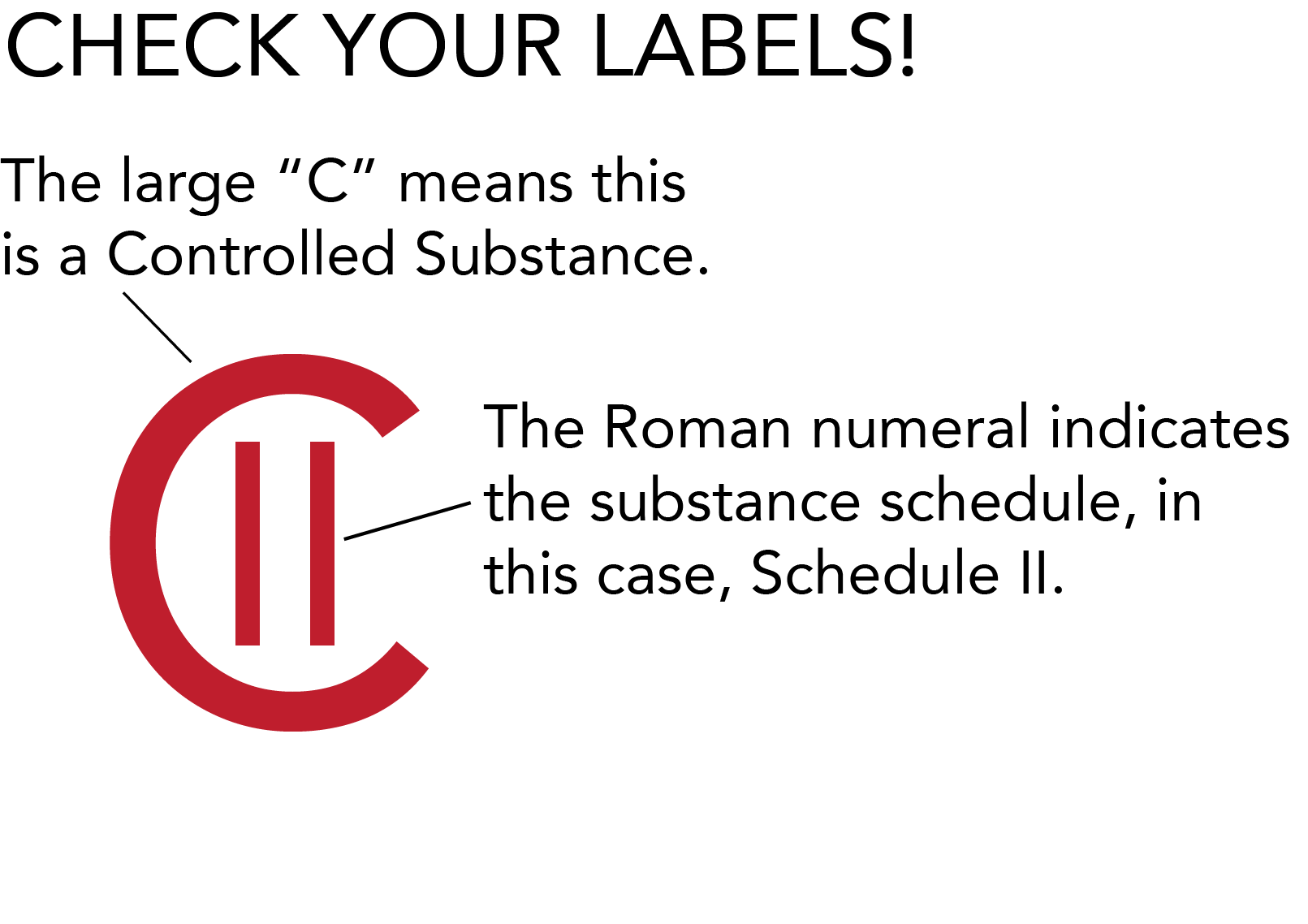You are here
Controlled Substances in Research
Research Use of Controlled Substances Is Strictly Regulated!
U-M researchers who obtain, store, and utilize controlled substances in their research MUST comply with all relevant State and Federal regulations, including all of U-M's policies and procedures related to work with these substances.
UMOR Controlled Substances Monitoring Program
The U-M Controlled Substances in Research Monitoring Program ensures compliance with federal and state regulations pertaining to controlled substances in the research setting at the University of Michigan, including controlled substances that are associated with animal research, administered to human subjects as part of a research protocol, and used for in vitro or analytical research. The program is comprised of the following:
- The Controlled Substances (CS) Monitor provides direct support to U-M researchers who work with controlled substances and monitors implementation of compliance with federal and state requirements for this work. Before a lab begins any work with controlled substances, the monitor provides training to laboratory staff regarding licensing and registration requirements, record-keeping, and procedures for storage, disposal, and waste. In addition, the monitor meets each year with all investigators who are conducting work with controlled substances to review records and to help identify any corrective actions needed to prevent problems in the event of an audit by the State or DEA.
- The Controlled Substances Research Review Committee (CSRRC), established by the Vice President for Research, reviews policies and procedures and provides guidance on maintaining compliance in conducting research with controlled substances. For details about these regulations, see the links listed in References and Resources, below. In addition, the committee provides guidance to the UMOR Controlled Substance Monitoring Program about the development of standards for inspection, compliance monitoring, and responses to non-compliance. The committee meets quarterly and consists of faculty from major units in which controlled substance are used in research and also key U-M administrators from across campus.
Researcher Roles & Responsibilities
To conduct research at U-M involving controlled substances, you must:
1) Be covered by an approved State of Michigan license and DEA registration:
- EITHER you have your active State of Michigan (SOM) license and DEA registration for controlled substances in research, and you have created a Controlled Substances Record (CSR) in eResearch.
- OR you are approved as authorized personnel or an authorized agent under the license and registration of another U-M researcher. In this case, you must also list that licensee/registrant as a member of the study team on your animal and/or human subject research protocol and identify them as the registrant for any of your controlled substance work.
2) Complete required training with the CS Monitor:
-
In addition, before any work with controlled substances begins in your lab, you must meet with your CS monitor for training on proper record-keeping, storage, disposal, and waste.
For more information about these processes, contact the CS Monitor at 734-764-2003 or cs-monitors@med.umich.edu
As an active SOM licensee/DEA registrant, you must:
- Properly store controlled substances per State of Michigan and DEA regulations
- Properly screen and document as authorized personnel or authorized agent the U-M investigators and laboratory staff who will use the controlled substances for research under your license and registration
- Maintain at all times accurate and complete records per compliance regulations
- Maintain an up to date registration in U-M's Controlled Substances Registration (CSR) database
- Immediately report to the CS monitor any diversions or significant loss of the controlled substances under your supervision
- Meet annually with your CS monitor to review controlled substances records and identify any areas where improvement is needed
 Do you hold a Practitioner's License but also use CS in your Research?
Do you hold a Practitioner's License but also use CS in your Research?
If you have a controlled substance practitioner's license and registration, and you are conducting non-clinical (e.g., animal, analytical, or in vitro) research, U-M policy requires that you obtain a separate research license and registration to conduct research activity using controlled substances. This reduces risk to your medical or dental practice in cases of non-compliance with research, per SOM or DEA policies.
FAQs
The federal Controlled Substance Act defines and classifies drugs and other substances into five (5) controlled substance schedules (I - V) according their potential for abuse and addiction. The substance's schedule dictates the application process to use and guidelines to follow for security, storage, etc.

Schedule I: illicit drugs, compounds and their chemical precursors that have a high potential for abuse, no accepted medical use, and lack of accepted safety protocols for medical use. They are typically used for drug abuse/addiction research or for analytical research.
Schedules II-V: drugs, compounds, and their chemical precursors that have accepted medical uses and a decreasing potential for abuse.
References and Resources
Questions?
For information on, or questions about, U-M policy regarding use of controlled substance in research, procedures, assistance, and more contact the Controlled Substance Monitoring Program Manager:
Kelli Christman 734-764-2003